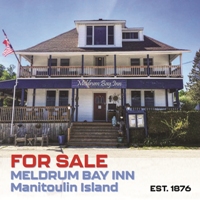Here’s some information provided by Arlene Kennedy of Tobermory, about the Dark Skies initiative on the Bruce Peninsula. I find it fascinating. Check this out…
By Arlene Kennedy
Consider what civilization means for our Dark Skies today. This Spring we have a rare opportunity to learn of the discoveries and share the special personal experiences of some of the most passionate, knowledgeable, informed and fascinating speakers of our day.
Dark Skies is the central theme of the third innovative Sources of Knowledge Forum, April 29 and 30, 2011 at the Parks Canada Visitor Centre in Tobermory, Ontario, a chance to explore exciting Dark Skies research and ideas first-hand with 30 minute presentations and 8 workshops by a wide range of a dozen experts, as well as an art exhibition of night photography on view from April 29 to May 8.
Are you a star gazer? They seem so close, you could almost touch them. Unimpeded by light and air pollution, there are at least ten Dark Skies designated sites in Canada. No-one makes light of the value of this rare designation on the North Bruce Peninsula.
Who doesn’t love a sunset? Glorious colour infuses the sky with an ethereal glow that tugs at our senses and our hearts. But what if the sky glow doesn’t go away? We hear of ‘the land of the midnight sun’ where the sun never really sets, but what happens in most cities, in what most of us think of as the dead of night, is everlasting night sky glow. Reflected light, likely captured by air pollution, bounces off highly lit areas into the night sky, blocking out most of the stars and planets. It seem like the stars have become dimmer. The Royal Astronomical Society of Canada says a dark sky preserve is a site with “very dark skies and virtually no sky glow on the horizon”.
Too much outdoor lighting in most areas is excessive and poorly designed. It is costly and wastes electricity. It’s not even safe or secure because it blinds us and animals, (like the deer in the glare of headlights), making it all but impossible to see beyond the bright pool of light into the inky black surrounding it – good for actually hiding, rather than revealing.
A good night’s sleep is priceless, but some bedrooms never get fully dark. City street lights interrupt our natural sleep rhythms, leading to health problems. Night light disrupts natural habitats including those of insects, (have you ever watched a naked light bulb swarming with bugs, a heap of bug bodies on the ground below it?), life in the Great Lakes, reptiles, amphibians, bats and migratory birds that are hopefully safeguarded through the Fatal Light Awareness Program. It is clear why biological researchers are attracted to this unique biosphere.
Astronomers often travel to other exotic places such as Arizona, Peru or Australia for conditions like those in North Bruce where on a clear night, you can see forever. Eco-tourism and edu-tourism and dark skies reflect the Bruce Peninsula’s resurgent interest as a sustainable community, as a conservation-minded, innovative and educated community with an attractive lifestyle that attracts more residents and visitors every year.
Human eyesight has evolved to see at night as well as in the day. Night time changes the usual way we experience the outdoor world, especially in our parks. Try taking a flashlight to put on as soon as you get to the park and allow your eyes to become accustomed to the darkness. When you get to the trail or to the area that you want to view the sky, turn off the flashlight. Stand still with your eyes closed then open them. Our eyes are seeing the moon and stars just as our ancient ancestors did. Everything is transformed like an old black and white movie. Some of the stars and planets we see have sent us that light generated uncounted light-years away in the past, light that only now has reached us here on earth. Night skies are a kind of time machine, inspiring tales, reflection, scientific discoveries, music, horoscopes, poetry, art, myths and perhaps even structures like Stonehenge or pyramids. Culture and the ecology of the night also have a unique Aboriginal perspective. See the light and join us at the Dark Skies Forum. Limited registration is now available at www.sourcesofknowledge.ca .





1 Comment
The “Dark Skies, Bright Minds” theme reminds me of the magic in the song “Taps” at camp:
Day is done, gone the sun
From the lakes, from the hills, from the sky
All is well, safely rest;
God is nigh.
click here for the music:
http://www.songsforteaching.com/folk/tapsdayisdone.php
Looking forward to sharing this magic in the beautiful dark sky sanctuary in the Upper Bruce Peninsula.
This evening, I must go out and try to grab a star… there are so many to choose from!